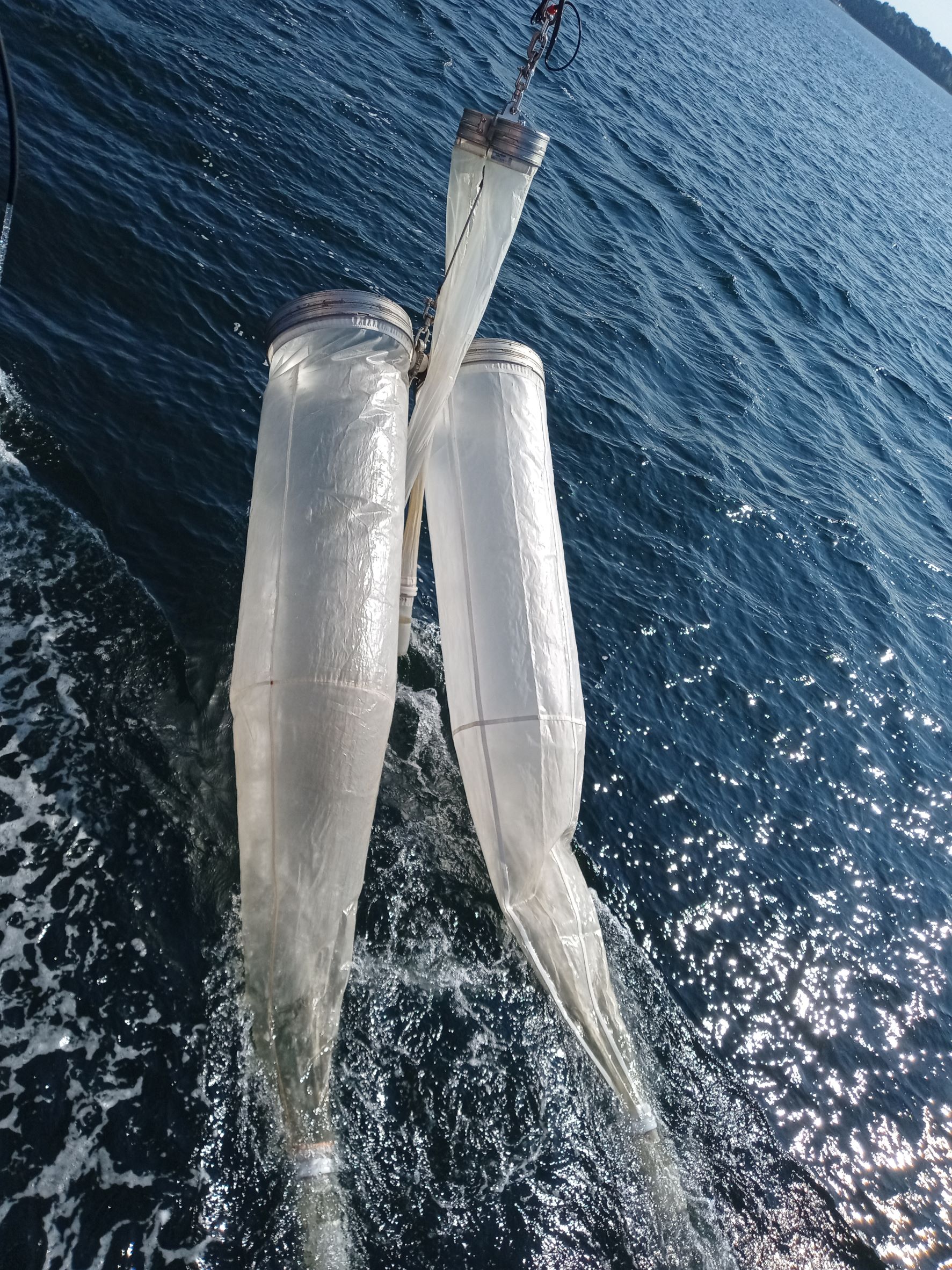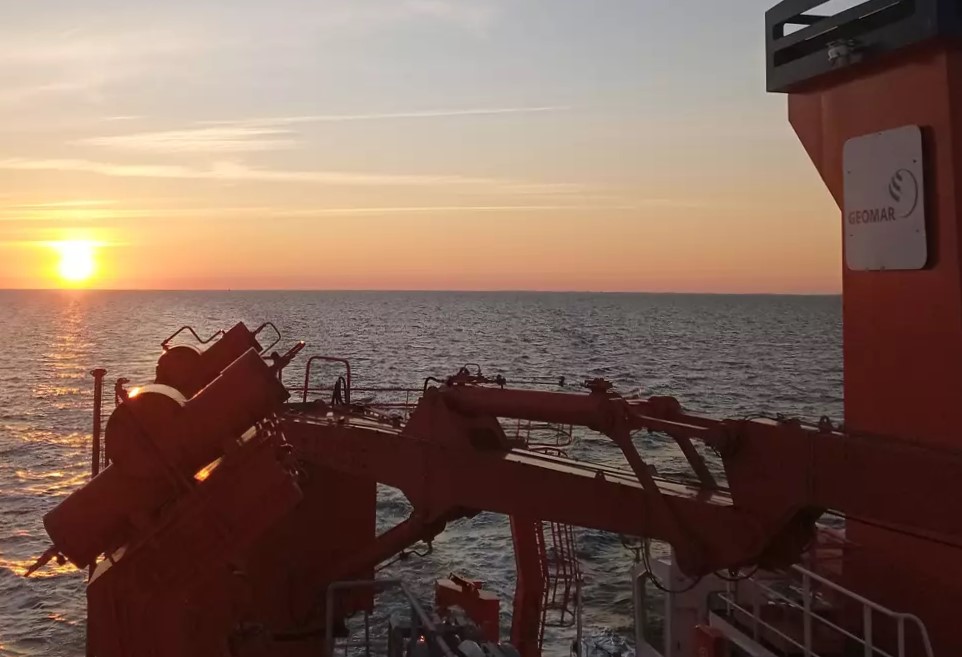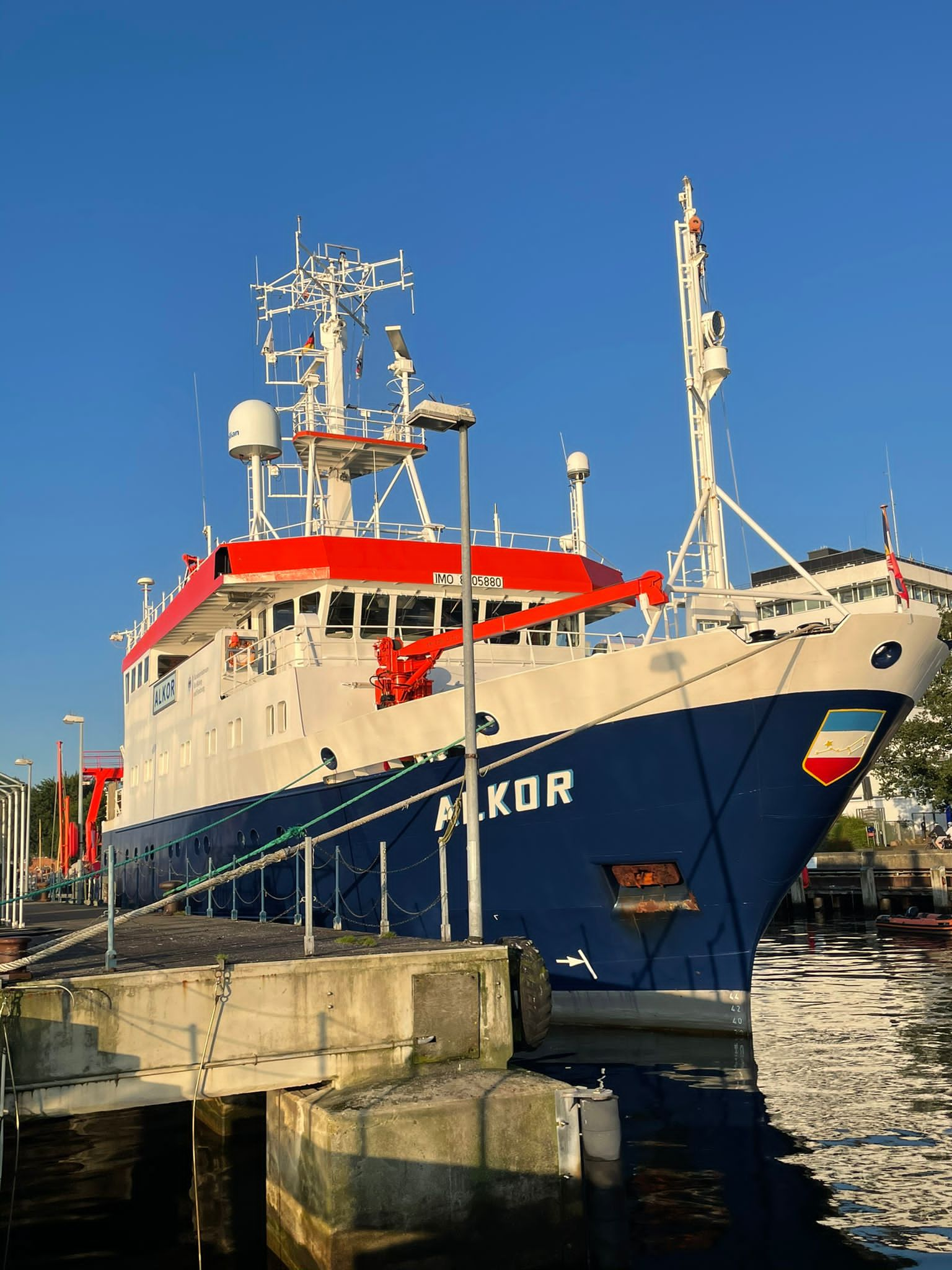Back in October of 2020, deciding to move to a new country where I didn’t speak or understand the language at the height of a worldwide pandemic to pursue MSc. Biological Oceanography was a challenge I never thought I could overcome, but here we are in September 2021!
Truth be told, two semesters of just online classes wasn’t a great re-introduction to science and oceanography. So, when the opportunity to join a cruise arose, I couldn’t say no. Finally, after almost a year of digital learning, I finally get to experience REAL SCIENCE and on board a research vessel no less. To say I was excited, would have been an understatement.
Since we’re still in the middle of the pandemic, before any of us could board the ship we all had to prove our vaccination status. As an extra health and safety precaution everyone had to get tested the day before. Thankfully, my cohorts and I all tested negative, so it was time to pack and get ready for what would be the first research cruise for most of us.
Bright and early on 31 August 2021, my fellow scientists and I boarded the ALKOR for its 563th journey to sea, this again would officially be my very first time on a scientific cruise and I didn’t really know what to expect. Like most people, at the mention of “cruise” naturally I thought of those giant ships that dock in Kiel towing along tourists from all over the Baltic, but ALKOR is far smaller and definitely far superior than any luxury cruise ship.
Why is the ALKOR impressive? (Aside from the food, of course) Because the crew works like a seamless and polished clock that watching them prepare, communicate, and lower the gear into the sea with such precision and experience was impressive for a newbie like myself. Before officially leaving Kiel, we even had to test the equipment (CTD, water sampler, bongo nets, etc.) to make sure everything was working properly. Seeing how a rosette CTD is deployed, watching the Bongo nets hit the water as it was towed by the ship, this was dream come true for a novice scientist.

Aside from the sampling gear and methods, seeing and getting the chance to use laboratories onboard was thrilling, I never expected it would be possible to analyze samples so efficiently onboard a moving ship, but everything worked out so well. Everything from phytoplankton and zooplankton abundances, the Winkler Titration, Chlorophyll a measurement, and eDNA filtration could be done in the three laboratories on board on the same day they were collected. Clearly this first cruise on the ALKOR is a great way to kick off my experience of doing science at sea.
Yes, the days are long and there’s a lot of work to be done but so far, the days have still been exciting and I am learning a lot with every passing station. The work makes sleeping at night feel rewarding and waking up the next day filled with a purpose.
However, it wasn’t all fun and science for me. Sadly, after just the second day out at sea, the dreaded curse that is sea sickness caught hold of me and I was starting to wonder if I belonged on board, but with a lot of reassurance from my cohorts, a good night’s sleep, and an encouraging lead scientist I am happy to say that I am slowly recovering.
Maybe by the end of this cruise I will finally earn my sea legs, and if not, I’m sure the ALKOR has room for one more budding scientist in the making during its next voyage, wherever that may be.

A blogpost by Gianina Consing.
